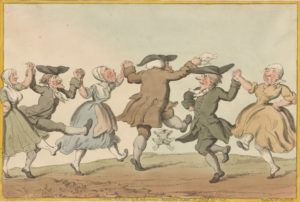What’s it like to appear before the United States Supreme Court? Let’s talk about it, podcast-style.
The United States Supreme Court hears oral argument from attorneys in only about 80 cases a year. Thus, many appellate attorneys never have the opportunity to experience what it is like to actually advocate in the High Court. I (Jared) recently learned what it is like appearing before the Supreme Court from Duane Daiker, a fellow board-certified appellate specialist in Tampa Bay and a good friend of DPW Legal, on the Issues on Appeal podcast.

Duane is the creator and host of Issues on Appeal. Each week he speaks with fellow appellate practitioners about topics that are interesting to, well, the same people we suspect are interested in this Florida Appellate Procedure Weblog!
Duane recently took his first trip as an advocate to the Supreme Court. He sat second-chair on a case he handled through the trial and intermediate appellate stages. This visit was a perfect topic for his podcast. But rather than just talk about his visit himself on his podcast, Duane enlisted me to guest host his show, and turn the tables on him.
I asked every question I could come up with that all of us inquiring appellate nerds would want to ask. Where do you go when you enter the court? What’s security like? Who comes and talks to you? Is there a lawyers’ lounge? What’s it like sitting at counsel’s table? Did Justice Thomas ask a question? I hear you get a feather quill–can I touch it? (Yes, I really did ask, and yes, I did get to hold it. You know you would ask, too.) Our discussion was full of interesting tidbits about the preparation, the day of argument, the people at the Court, and the entire experience.
If this sounds interesting to you, check out Episode 4 of the Issues on Appeal podcast, “At the High Court.” You can check it out at the link or on iTunes, Google Podcasts, or Spotify.
And if you like that episode, listen to some of the other episodes. Duane has already had a number of great guests. Dineen and I are both slated to be guests for future episodes. What will we talk about? Stay tuned to find out.
Want to hear more about the United States Supreme Court or other appellate issues? Subscribe!
We’ve discussed the SCOTUS in the past (for example, here and here) and we’re sure to do it again. Keep abreast of changes there or in other courts that are interesting or may impact your practice by subscribing for updates on the Florida Appellate Procedure Weblog.

